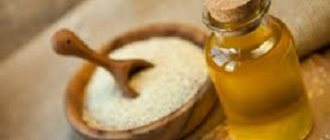Many people suffering from diseases of the digestive system are interested in whether it is possible to drink kefir for gastritis. The need for such information is based on the fact that this drink, which benefits the entire body, can negatively affect the condition of the gastric mucosa. The problem is that gastritis is a disease with a complex of different manifestations. Each type of gastritis requires its own set of products.
Is the drink healthy?
Kefir is a healthy product. Here is a list of properties it has:
- stimulates the immune system;
- supplies essential amino acids as part of proteins;
- prevents the proliferation of harmful bacteria in the intestines;
- populates the intestines with beneficial microflora;
- serves as a source of vitamins (A, B, C, H) and minerals (calcium, phosphorus, magnesium, potassium);
- has a mild diuretic effect;
- calms the nervous system;
- stimulates appetite;
- fights constipation;
- enhances gastrointestinal motility;
- activates the secretion of gastric juice and digestive enzymes.
Depending on the duration of ripening, kefir is divided into weak (ripens for 24 hours), medium (48 hours) and strong (from 72 hours). The stronger the product, the more strongly it affects the production of digestive juice and loosens the stool.
The drink can be low-fat (0.1%), low-fat (0.3-1.0%), low-fat (1.0-2.5%), classic (2.7-4.5%), fatty (4 .7-7.0%), high-fat (7.2-9.5%).
Features of gastritis
Gastritis goes through several stages in its development. If you do not pay attention to the first signs of the disease, then after a while you can experience an aggravated form. The thing is that the gastric mucosa will almost constantly be irritated by the food that gets there, especially if it is harmful. In addition, for some, chronic stress, fatigue and simply an incorrect rhythm of life are added to their diet. At first, you may feel minor pain or short-term bouts of nausea, but all this quickly disappears. If these signals are ignored, then irreversible processes of change in the gastric mucosa itself may begin inside. No self-medication is inappropriate in this case. You will need professional consultation with a specialist and only the right medication, combined with diet and even physical therapy. Only in a comprehensive manner can we try to correct the situation and restore health. Otherwise, the risk of ulcers and even stomach cancer cannot be excluded.
Is it possible to drink kefir if you have stomach diseases?
In the acute period of any type of gastritis of the stomach, kefir is contraindicated, since the pronounced stimulating effect never benefits the diseased organ.
It is allowed to gradually introduce it into the diet only after the inflammatory processes have subsided and health has improved.
With increased acidity
If a person suffers from gastritis with a high acidity of gastric contents, then kefir can only aggravate the situation, provoking an even more active production of hydrochloric acid. Therefore, in such cases, only fresh, one-day-old kefir is allowed to drink, and only against the background of stable remission. The fat content of the product should not exceed 2.5%. It is not advisable to drink more than 1 glass per day, otherwise discomfort, nausea and heartburn may occur.
For low acidity
If the acidity is reduced, then kefir is not only allowed, but also useful. It is better to drink its three-day version with a fat content of at least 3% . This drink has an enveloping, protective effect, increases appetite, reduces pain and normalizes the production of hydrochloric acid.
Kefir
In addition to its pleasant taste, kefir has many beneficial properties that make food easier to digest, such as:
- contains a huge number of beneficial microorganisms that inhibit the development of pathogenic bacteria and normalize the microflora of the stomach, which is directly related to the prevention of dysbacteriosis;
- increases the body's immune defense;
- prevents the proliferation of Helicobacter pylori;
- brings vitamins of various groups - retinoids, ascorbic, pantothenic, folic, essential fatty acids;
- has a calming effect and inhibits stress.
For chronic gastritis, or if the acid content is increased, it is recommended to drink half a glass of kefir before meals.
With an erosive form of the disease
The use of kefir in the presence of erosions in the stomach is contraindicated until they heal .
Otherwise, it is possible to slow down the regeneration processes of the mucous membrane due to increased acidity and stimulation of motility. During the recovery period, it is allowed to consume a daily product with a low fat content. Kefir can also be diluted with water: such a drink perfectly quenches thirst, and its possible negative impact is minimized. It’s even better to add a teaspoon of sea buckthorn oil to a glass of kefir; this remedy accelerates the healing process of the inner lining of the stomach.
Is it possible or not with an atrophic appearance?
For atrophic gastritis, kefir is allowed for consumption. It is better to choose a fairly fatty product that has been infused for at least 3 days. It will protect the thinned mucosa well, and additional stimulation of the secretion of gastric juice during atrophic changes will not harm.
Preparation of the product
Low-fat fermented milk products can be bought in the store or prepared yourself. The latter guarantees high quality, naturalness and degree of aging. The product is prepared as follows:
- the milk should be heated to body temperature - 36 ° C, it cannot be increased more;
- add pharmacy dry starter;
- place in a warm place for 8-10 hours.
Interesting! Symptoms and treatment of high and low acidity
After the specified period, the kefir is ready. With prolonged use, but no more than two weeks if the acidity is low and 3 days if the acidity is high, the drink is put in the refrigerator.
How to use it correctly
Nutritionists advise adhering to the following recommendations:
- You cannot drink chilled kefir just taken out of the refrigerator. Like any other product that is too cold, it will irritate the stomach and cause pain. However, you shouldn’t heat it in the microwave either, otherwise most of the beneficial microorganisms in it will die. It is optimal to let the drink stand outside the refrigerator for about 1 hour so that it warms up to room temperature.
- Pay attention to what you buy . “Kefir product” has a rather distant resemblance to natural kefir. Real kefir contains only milk and kefir grain starter. Its shelf life should not exceed 7 (maximum 10) days - this is a sign of the absence of preservatives.
- It is recommended to drink 200-400 g of drink per day. The restrictions are especially strict for patients with erosive or hyperacid gastritis. In the case of hypoacid or atrophic gastritis, the daily norm can be exceeded (provided it is well tolerated).
- It is better for patients with erosive or hyperacid gastritis to drink kefir after meals up to 6 times a day , dividing the daily dose into small portions. For atrophic or hypoacid variants - half an hour before meals, and in the evening - a couple of hours before going to bed.
You can prepare delicious drinks on a kefir basis by adding fruits and berries (bananas, pears, cherries), and thermally processed vegetables (pumpkin, zucchini, carrots).
Such a popular drink as low-fat kefir with herbs and cucumber, mixed in a blender, is allowed only if the acidity of the gastric contents is reduced, since cucumbers themselves also stimulate the production of hydrochloric acid. In addition, patients with hypoacid gastritis can add cocoa, cinnamon, and ginger to kefir.
Important! Whatever type of gastritis you suffer from, when choosing a diet, always be guided by your own well-being. If after a glass of kefir you feel heartburn or pain in the stomach, it is better to refuse the drink.
Characteristics of the disease
The gastric mucosa can become inflamed for various reasons. This may be irregular eating, dieting, dry food, frequent stress or infectious diseases. Gastritis can develop as a complication after food poisoning or intestinal infection. In this case, the inflammation gradually progresses and without treatment can lead to a stomach ulcer. Therefore, it is very important to follow a proper diet so as not to provoke exacerbations.
Features of the diet depend on the severity of the pathology and its type. Gastritis may be accompanied by increased acidity of gastric juice or its decrease. These are different diseases that require special treatment. When acidity increases, abdominal pain is often observed, worsening in the absence of food, heartburn, increased appetite, and diarrhea. Gastritis with low acidity of gastric juice is accompanied by nausea, constipation, heaviness after eating, and loss of appetite. But in order to accurately determine the type of disease, it is necessary to undergo tests and undergo probing.
Often, exacerbation of gastritis is triggered by the consumption of certain foods. It is especially harmful to eat fatty or spicy foods, canned food, marinades, and smoked foods during inflammatory processes in the gastric mucosa. Exacerbation of the disease can be caused by drinking alcohol or carbonated drinks, eating too cold or hot food. If acidity increases, it is not recommended to eat acidic foods.
For gastritis of any type, you need to eat according to certain rules:
- you need to eat in small portions, at least 3 times a day;
- all food should be warm;
- foods need to be boiled or stewed; it is undesirable to eat fried foods;
- You need to drink at least 1.5 liters of water per day.
It is often recommended to drink kefir for gastritis. This product is believed to help improve digestion. But you can’t always use it; in addition, not every drink called kefir will be useful for an inflamed stomach. Its incorrect choice and use can only harm your health.
Contraindications
Fermented milk products are contraindicated in the following cases:
- allergic reaction to milk protein;
- individual intolerance;
- digestive system disorders;
- discomfort in the intestinal area;
- ulcer in the acute stage with increased acidity.
In other cases, the possibility of drinking a fermented milk drink must be considered individually and carefully monitor your condition.
https://youtu.be/b4ND8wXc2R8
What beneficial properties does it have?
Kefir has more beneficial properties for the digestive system than other fermented milk products. The product consists of bacteria that:
- restore intestinal microflora;
- stimulate metabolism in the body;
- normalize the digestion process;
- block the proliferation of pathogenic flora in the digestive system;
- remove toxins from the intestines;
- prevent infection with tuberculosis;
- suppress inflammatory processes in the walls of the gastrointestinal tract;
- accelerate rehabilitation in the postoperative period;
- improve blood supply to stomach tissues due to its beneficial effect on the vascular system.
Kefir is great for people who are lactose intolerant. The product is easily digestible and does not cause allergic reactions. For this reason, it can be given to children from 1 year of age with problematic bowel movements (constipation). It is useful for overweight patients to carry out fasting days with drinking a drink every 2 hours.
Over time, a product can change its characteristics. A freshly prepared drink removes toxins from the body and helps relieve constipation. Kefir aged for 2 days is recommended for use in cases of diabetes, obesity, iron deficiency in the body, and pathologies of the cardiovascular system. Three-day kefir is characterized by a strengthening effect, so it is useful to drink for people suffering from diarrhea. An aged drink is more difficult for the body to absorb, so it is contraindicated for liver and kidney diseases.
To prevent gastrointestinal pathologies, the product is consumed within a month. In case of serious problems, you should consult a doctor about taking fermented milk products.
Timely treatment and prevention are the key to health
It is necessary to pay attention to healthy foods and adhere to proper nutrition not only when gastritis has already clearly manifested itself, but also before that. In this case, you may not encounter such a problem at all. Regular consumption of fresh kefir, various cocktails, proper and balanced nutrition is the real guarantee of good health and the absence of any problems in the gastrointestinal tract.
A person’s health depends only on him, you should always remember this, take care of your well-being and choose only fresh, natural products for yourself.
The benefits of lactose are undeniable. That is why, for many serious diseases, doctors advise their patients to rely on dairy products. One single glass of kefir before bed will significantly improve the well-being of anyone who suffers from intestinal disorders or heart problems. And if you have been diagnosed with gastritis, you simply must include the mentioned product in your daily diet.
What kind of kefir should you drink for stomach diseases? Is there any “schedule” for taking this healing drink? And finally, is there a risk of harming your health by “incorrectly” using kefir for gastritis? We will try to answer these and other equally important questions in this article.
Gastritis, in the presence of low acidity
With a lack of gastric juice, flatulence occurs.
When there is not enough gastric juice in the body, discomfort appears. A person feels heaviness in the stomach and flatulence is observed.
This indicates that the stomach is not working fully. Gastritis, in the presence of low acidity, is also accompanied by incomplete functioning of this organ, which implies an urgent visit to a doctor to prescribe the necessary treatment.
Worth remembering! If a person has low acidity, then drinking milk is not allowed. It can be used only in small quantities, as an additive to other food products.
How to choose a quality product
It is important to choose high-quality kefir. And not only for gastritis. Many manufacturers produce fermented milk drinks with the addition of emulsifiers and harmful additives.
- Read carefully what is written on the packaging.
- Choose products that state that they are made from whole milk.
- If you see preservatives, additives, or emulsifiers in the composition, it is better to refuse to purchase.
- The gastric mucosa is very susceptible to such components and manifests itself as inflammation.
- Don't buy expired products.
- A properly prepared drink should have a uniform consistency, a pleasant aroma, and a white tint.
Low acidity and kefir consumption
As a rule, during remission the level of stomach acidity not only returns to normal, but can also be reduced. Since there is little hydrochloric acid in the body, doctors recommend regular consumption of kefir. Thanks to a number of important vitamins and microelements, this product will contribute to the continuation of remission and the normalization of all metabolic and digestive processes. Just be sure to pay attention to the freshness and fat content of the product. It is worth remembering that only high-quality kefir for gastritis will benefit the body.
What beneficial properties does it have?
Kefir has more beneficial properties for the digestive system than other fermented milk products. The product consists of bacteria that:
- restore intestinal microflora,
- stimulate metabolism in the body,
- normalize the digestion process,
- block the proliferation of pathogenic flora in the digestive system,
- remove toxins from the intestines,
- prevent infection with tuberculosis,
- suppress inflammatory processes in the walls of the gastrointestinal tract,
- accelerate rehabilitation in the postoperative period,
- improve blood supply to stomach tissues due to its beneficial effect on the vascular system.
Kefir is great for people who are lactose intolerant. The product is easily digestible and does not cause allergic reactions. For this reason, it can be given to children from 1 year of age with problematic bowel movements (constipation). It is useful for overweight patients to carry out fasting days with drinking a drink every 2 hours.
Over time, a product can change its characteristics. A freshly prepared drink removes toxins from the body and helps relieve constipation. Kefir aged for 2 days is recommended for use in cases of diabetes, obesity, iron deficiency in the body, and pathologies of the cardiovascular system. Three-day kefir is characterized by a strengthening effect, so it is useful to drink for people suffering from diarrhea. An aged drink is more difficult for the body to absorb, so it is contraindicated for liver and kidney diseases.
To prevent gastrointestinal pathologies, the product is consumed within a month. In case of serious problems, you should consult a doctor about taking fermented milk products.
Diet during gastritis. What can you eat?
What to eat for gastritis? Depending on the form of the patient’s disease, whether he was admitted with an exacerbation or this is a routine check, the doctor prescribes a certain diet. It is also very important to consider the level of stomach acidity. A lot depends on this. If you follow all medical recommendations, you can stabilize your health in a short time, and after that the long-awaited remission will occur.
What should you not do if you have gastritis? This is understandable: fatty, fried, spicy, sour foods should be excluded from your diet. The consumption of alcohol and soda is also contraindicated; not even all juices are allowed.
What can you do for gastritis? A diet for people who have low acidity primarily includes the presence of broths - meat and fish. It is this product that works as a good stimulator for the production of gastric juice. Gradually, the pain will decrease, and then you need to include in your diet:
- liquid porridge;
- pureed soup;
- boiled lightly salted chicken;
- steamed cutlets from lean poultry and fish;
- steamed omelettes and boiled eggs;
- cottage cheese in its pure form;
- berry and vegetable mousses or jelly.
What can you do for gastritis if the level of acidity in the body is increased? The diet will be different. In this case, first all products should be light and gentle. Light soups are allowed only with chicken broth and with a small addition of cereals. You can also introduce milk soups. Don't forget about steamed vegetables. As soon as the condition returns to normal, you can eat some crackers, steamed cutlets and boiled meat.











